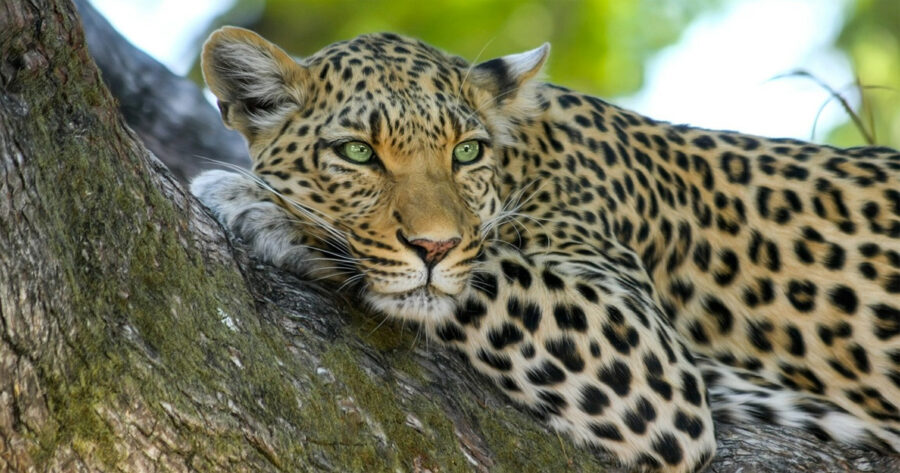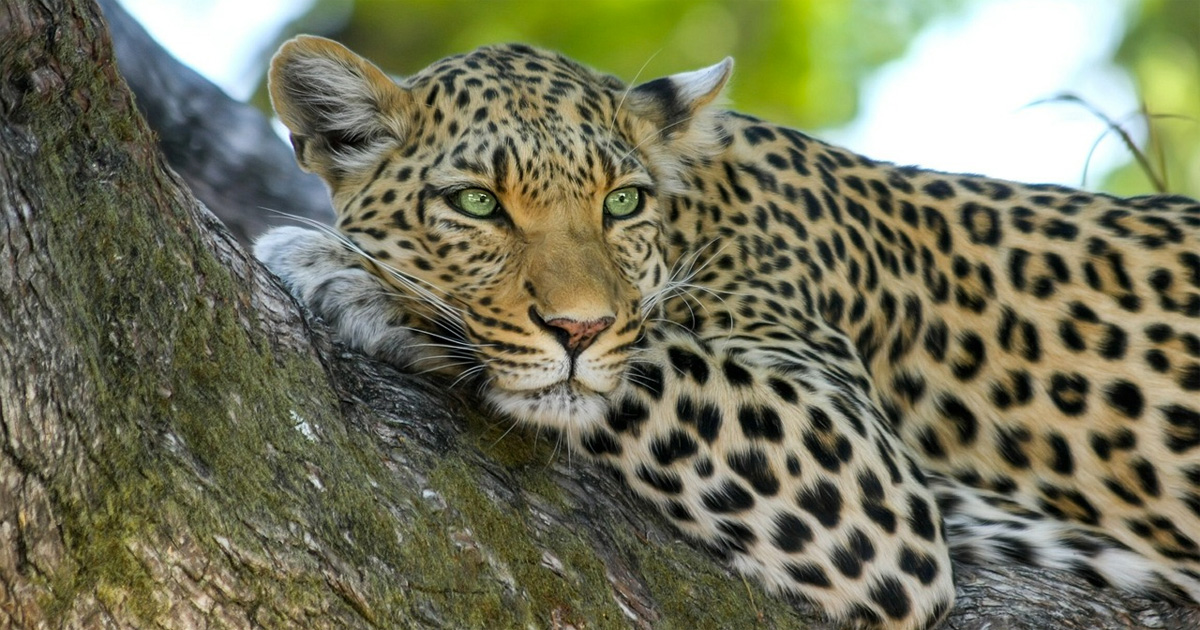
Over 75000 Global Citizens Urge South African Minister to Finalise Plans for New People and Wildlife Deal
A weighty 75,504 global citizens (including at least 9,011 voices from South Africa) are calling on Minister Barbara Creecy and her Department of Forestry, Fisheries and the Environment (DFFE) to implement the New Deal for People and Wildlife, as outlined in the draft Policy Position on the conservation and ecologically sustainable use of elephant, lion, […]

A weighty 75,504 global citizens (including at least 9,011 voices from South Africa) are calling on Minister Barbara Creecy and her Department of Forestry, Fisheries and the Environment (DFFE) to implement the New Deal for People and Wildlife, as outlined in the draft Policy Position on the conservation and ecologically sustainable use of elephant, lion, leopard and rhinoceros, without further delay.
On 2 May 2021, Minister Creecy announced her proposal to adopt the vision outlined in the High-Level Panel’s report and its associated goals and recommendations, including the courageous step towards bringing an end to the commercial captive lion industry in South Africa.
In a submission to an extended call for comments on the draft Policy Position document, thousands of South Africans, voices from the African continent and beyond expressed their collective concern about the fate of South Africa’s biodiversity and iconic wildlife, and their support for the visionary draft Policy Position that seeks to redefine South Africa’s relationship with its wildlife.
The public are now asking the Minister to follow through on her promises and set ambitious and urgent time frames for the forward-looking goals outlined in the policy document, including:
- To immediately halt the domestication and exploitation of lion, and the closure of captive lion facilities.
- To reverse the domestication and intensification of management of rhino.
- To prohibit ivory and rhino horn trade under current conditions.
- To restrict ex situ live export of the iconic species.
- To implement an increased wildness, naturalness and wellbeing of fauna focus.
- To adopt the One Welfare approach.
- To embrace a transformative African approach to conservation and ecologically sustainable use, consistent with Ubuntu.
These progressive and ambitious goals proposed by the Minister and DFFE are supported by many organisations, including Blood Lions, Humane Society International – Africa, World Animal Protection, Born Free Foundation, and FOUR PAWS South Africa. These five animal welfare organisations commend the Minister for such a progressive conservation policy and urge her to finalise the policy in order to implement the proposed changes.
These shifts in policy will not only signify a New Deal for people and wildlife, but also position South Africa as a global conservation leader and destination of choice for nature-based tourism, a key future driver of our economy and rural socio-economic development.
The draft Policy Position on the conservation and ecologically sustainable use of elephant, lion, leopard and rhinoceros was developed after a year-long consultation process by the High-Level Panel, established by the Minister, and their recommendations in a 600-page Ministerial report.
The finalisation of the draft Policy Position document is vital to put the necessary processes in place to achieve this new vision and goals in the interest of South Africa, all of her people and its wildlife.
Petition links: Change.org and Care2 Petitions
This what organisations involved had to say:
Dr Louise de Waal, Campaign Manager & Director, Blood Lions
“The Blood Lions film and global campaign was launched in 2015 and has worked tirelessly to end this cruel and unethical industry and its spin-off activities. We commend the Minister in her decisive leadership to bringing an end to the commercial captive lion breeding industry. However, the welfare of the predators involved in this exploitative industry hangs in the balance and thus swift and adequate action from DFFE and the Minister is required to start implementing a responsible phase out process. In this process, we hope that the Minister will afford all other indigenous and exotic big cats the same fate as she promised for our captive lions.”
Dr Audrey Delsink, Wildlife Director, HSI-Africa
“Tens of thousands of people locally and internationally support our call on Minister Creecy to act now. With One Welfare and wellbeing at the core of this transformative environmental policy, an end to intensive management and the exploitative use of animals may materialise. We urge the Minister to act swiftly to prevent further unnecessary cruelty during the implementation process, particularly for captive bred lions, who cannot remain in limbo during this interim stage towards reform. We stand ready to support the minister and her department during this critical process.”
Fiona Miles, Director, FOUR PAWS South Africa.
“FOUR PAWS in South Africa is in full support of the Government’s decision to undertake the progressive resolutions set out within its Draft Policy Paper on the management of five of the country’s iconic wildlife species. We believe the decision to end the captive lion breeding industry is truly pivotal and will change the future of the tens of thousands of lions that are currently being exploited. It is estimated up to 12,000 lions currently suffer across the country, where they are used for tourism purposes, such as bottle feeding, cub petting, walk with activities, trophy hunting and finally, their bones used in international wildlife trade markets. The end of this industry is something FOUR PAWS has been campaigning towards for 15 years and we are at Minister Creecy and her Department’s disposal, to ensure the decisions are implemented efficiently and effectively. We urge the Government to take the necessary action swiftly, in order to prevent further suffering.”
Edith Kabesiime, Wildlife Campaign Manager, World Animal Protection Africa
“World Animal Protection and Blood Lions together with many other stakeholders in the animal welfare and conservation sectors made a wealth of compelling science-based evidence available to the High-Level Panel in written and oral submissions in 2020. World Animal Protection continues to applaud Minister Barbara Creecy for her leadership and the bold steps so far taken, as part of the process to close down the commercial captive lion breeding industry. We would like to assure the Minister and DFFE that World Animal Protection remains committed and is ready to offer expertise to find practical solutions on how to phase out this industry completely. We should not allow the few individuals profiting from this cruel industry to win. Wild animals have a right to a wild life.”
Dr Mark Jones, Head of Policy, Born Free Foundation.
“Since our inception we have sought to highlight the devastating consequences of the exploitation of wild animals for trade, hunting and other destructive purposes. We have also advocated for many years for an end to the commercial lion breeding industry in South Africa, which currently exploits thousands of lions and other captive-bred predators for tourism activities such as cub petting and walking with lions, canned hunting, and the sale of bones and other products into international markets. The progressive reforms proposed by Minister Creecy have the potential to transform South Africa’s relationship with wild animals, and place it at the forefront of regional and international wildlife protection efforts for the good of all. It is vital that they are implemented in full and without delay. We stand ready to work with the South African authorities and other stakeholders to ensure that the reforms are successfully implemented and the objectives achieved, with full regard for animal welfare, and for the benefit of wildlife and wider biodiversity, as well as for the people of South Africa.”
